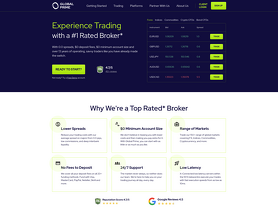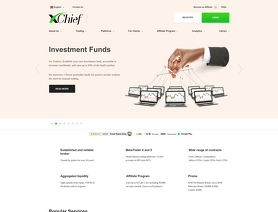Best Forex Brokers for Indonesia [ Revised in 2024 ]
Indonesia is a rapidly emerging market with a young population interested in forex trading. With a GDP of $3.5 trillion and rarely dropping below a 5% increase each year, Indonesia has good grounds for forex industry development. Although unemployment dropped to about 5% in the last decade, youth unemployment is still high at 15%. The population of above 260 million enables high demand for brokerages. Despite this, the biggest market share belongs to Monex Investindo Futures (MIFX), the biggest locally established Indonesian forex broker. There are also several other brokers from around the globe that accept Indonesian forex traders.
Popular Offshore Forex Brokers for Indonesian Traders
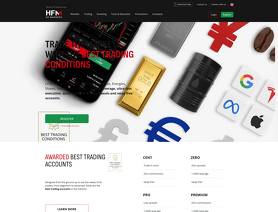
HFM (HF Markets)
Pepperstone
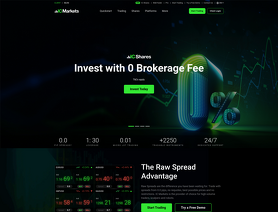
IC Markets
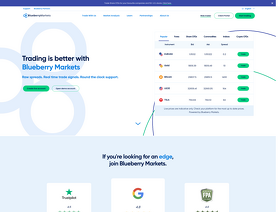
Blueberry Markets
Fusion Markets
Many already reputable brokers in other parts of the world will have branches that accept Indonesian clients under the Indonesian Financial Services Authority (FSA). The FSA allows brokers to conduct business in several ways of registration, such as affiliates and Introducing Brokers. The local name for this body is Otoritas Jasa Keuangan (OJK), founded in 2011 to replace the “Bank of Indonesia” in this role. Additional task for the FSA was to handle complaints and protect consumers of financial services. This protection caused many binary options brokers to be cut off from Indonesian traders. The FSA previously prohibited any registered financial entity to have business with cryptocurrencies, but that changed in 2019.
Indonesia’s Commodity Futures Trading Regulatory Agency (BAPPEBTI), part of the Ministry of Trade, is another regulatory body with a primary focus on commodities futures. In 2013 its duties extended to the oversight of derivatives issuers. In 2019, cryptocurrencies were classified as commodities in Indonesia, and a framework has been set up for trading crypto.
The Indonesian rupiah (IDR) is still an exotic currency, ranking as 31st most traded. IDR forex pairs are mostly listed among bigger brokerages. As the Indonesian equities market develops, IDR presence will increase among the international trade. Rapid digitalization and education about the markets in Indonesia promote the forex industry, however, FSA often changes the rules and supervision for brokers. Even though many international brokers will accept clients from Indonesia, few will offer trading accounts in IDR currency.
Islamic accounts are popular in Indonesia since more than 80% are declared Muslim. Consequently, Islamic accounts offer is common among many established brokers. Increasing interest in cryptocurrencies worldwide has not missed Indonesia. The dominant, younger Indonesian population is certainly the most interested. Commodity trading is traditionally in the focus, Indonesia is rich in oil, tin, copper, gold, and natural gas.
Traders prefer Bahasa language support from their brokers since English is not widely used. A high leverage account and small deposit range are typical for an average Indonesian client. This means the Indonesian market shares some similarities with China, requiring brokerages to localize their business model. Another interesting fact is that financial literacy and trading education campaigns are deployed over groups of beginner traders. This naturally means that each broker should invest in an educational materials to attract Indonesian clients.
FSA of Indonesia is the main regulatory body for brokerage business, accompanied by BAPPEBTI. Since the Indonesian market is unique and requires knowledge of Indonesian business culture, most serious brokers seek partnerships with local businesses and government entities. While local brokers exist, they are not developed as international brands, rarely providing the same quality of service. On the other hand, licensed brokers are strictly monitored and frequently audited. Consequently, the forex industry in Indonesia is much safer than in the previous decade before the FSA's founding. In addition, the Indonesian Ministry of Communication and Information Technology created a portal for checking any internet content for fraudulent activity.
So far, the FPA is only aware of one forex broker with a lincense from BAPPEBTI
Monex Investindo Futures (MIFX)
How to check if an Indonesian broker is legit?
A broker should present its license from multiple authorities and markets depending on how broad its services and product range are. The main license is issued by FSA or BAPPEBTI. The broker can also be a member of various exchanges such as the Indonesian Commodity and Derivatives Exchange, the Indonesian Clearing House, and others. Use the BAPPEBTI license search page and enter the broker name or license number. On the details page also make sure the broker website address registered matches the one you are on. Additionally, you can check for other issues, including the internet scam alert portal.
How to file a dispute with an Indonesian registered broker?
Contact FSA or BAPPEBTI for disputes. Note that English versions of the website are not available. Before all else be sure that the broker is licensed. If not, report a scam with the Indonesian Ministry of Communication and Information Technology. Although any loss will be hardly recovered in this case.
Are Indonesia brokers reliable?
Indonesia improved regulation and oversight since 2013 to the point any regulated broker in Indonesia can be considered safe. The requirements are strict and the procedure for opening a brokerage business is bureaucratic. Adaptation to the Indonesian market is also an issue. It is not uncommon to see a broker license revoked, be sure to check the license once you decide to open an account.
